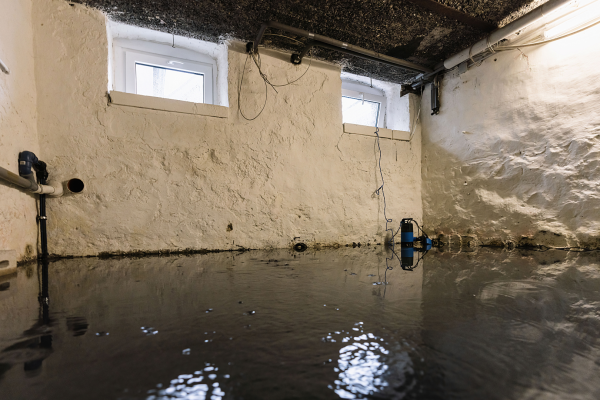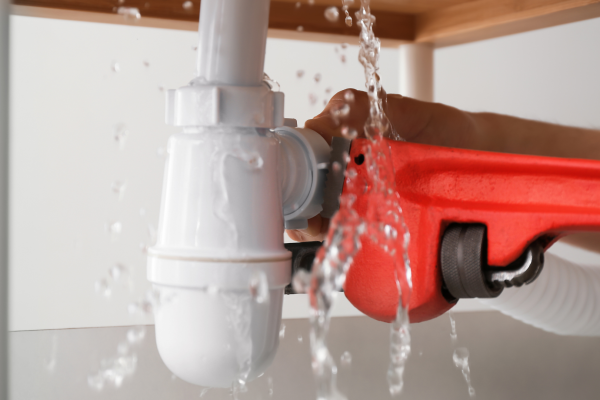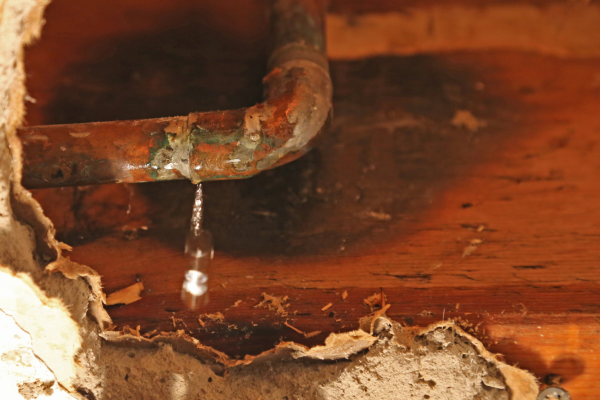Planning for Plumbing Leaks and Burst Pipe Emergencies
Plumbing leaks and burst pipes can cause a lot of damage to your home and are often a nightmare for homeowners. It is important to understand the causes, impact, and signs of potential plumbing leaks and burst pipes so you can take swift action in case of an emergency. In this blog post, we will discuss all that you need to know about plumbing leaks and burst pipes. We will cover the causes, impact, and signs of potential problems along with steps you should take when facing a plumbing leak or burst pipe. We will also provide preventative measures that can help reduce the risk of plumbing leaks and burst pipes in your home. Lastly, we will discuss how often you should schedule plumbing inspections to ensure your system is functioning properly.

Understanding Plumbing Leaks and Burst Pipes
Plumbing leaks and burst pipes can cause significant damage to your home. It is important to understand the main causes of these issues, such as rust or broken pipes. Not addressing plumbing leaks promptly can lead to flooding, mold, and costly renovations. These problems can also impact your water supply and water pressure, affecting your daily activities. By knowing the common problem areas in your plumbing system and taking swift action when facing leaks or burst pipes, you can minimize the potential damage and expenses.
Causes for Plumbing Leaks and Burst Pipes
Plumbing leaks and burst pipes can have various causes. Over time, corrosion of the plumbing system can weaken pipes and lead to leaks. Freezing water inside the pipes can also cause them to burst. High water pressure puts stress on the plumbing system, increasing the risk of leaks and bursts. Poor insulation, especially in crawl spaces or exterior walls, can make pipes more susceptible to damage. Additionally, wear and tear of older plumbing pipes can result in leaks and bursts. Understanding these causes can help you take preventative measures to avoid costly repairs in the future.
The Impact of Plumbing Leaks and Burst Pipes on Your Home
Water damage caused by plumbing leaks and burst pipes can have a significant impact on your home. Not only can it ruin walls, floors, and furniture, but it can also create an environment conducive to mold growth due to the presence of moisture. Additionally, these leaks can lead to an increased water bill as water is wasted through the leaks. Moreover, plumbing leaks and burst pipes can cause disruptions in the water supply, resulting in low water pressure. Dealing with the aftermath of such incidents can be costly, requiring repairs and restoration of the affected areas.

Steps to Take When Facing a Plumbing Leak or Burst Pipe
When facing a plumbing leak or burst pipe, it is crucial to take swift action to minimize damage. The first thing you should do is turn off the main water supply to prevent further flooding. Then, call a professional plumber with experience in handling emergencies. Take precautions to protect valuable items by moving them away from the affected area. Document the extent of the damage for insurance purposes if needed. Finally, follow the plumber’s instructions for temporary repairs using repair sleeves or pipe cutters if necessary.
Swiftly Turning Off the Water Supply
Knowing the location of the main water supply valve is crucial in an emergency. To turn off the water supply quickly, follow these simple steps: locate the valve, typically near the water meter or where the main water line enters your home, turn it clockwise to shut off the water flow. Taking precautions like turning off the water heater can help prevent further damage. By swiftly turning off the water supply, you can minimize water flow and pressure, reducing the extent of the damage. Remember to replenish the water supply after completing the repairs.
Releasing Pressure by Draining Taps
Releasing pressure before attempting repairs on a burst pipe is crucial. To drain the water from the system using the taps, start with the highest faucet and move downwards. This simple trick can prevent further water damage and make repairs easier. Monitor the water flow, dry the area, and seek the assistance of a plumber for actual repairs. By following these steps, you can release the pressure, minimize the risk of flooding, and save yourself from costly renovations. Remember to always take precautions and seek professional help when dealing with plumbing emergencies.
Locating and Assessing the Damage
To effectively address plumbing leaks and burst pipes, it’s crucial to know where to shut off your water supply to prevent further damage. Inspect the affected areas for any visible signs of leaks or burst pipes, but also consider using moisture meters and thermal imaging cameras to detect hidden water damage. Prioritize immediate repairs to prevent additional damage or the growth of mold. Be sure to document the damage and contact your insurance company to start the claims process.

Ways to Prevent Plumbing Leaks and Burst Pipes
To prevent plumbing leaks and burst pipes, regular maintenance of pipes and plumbing fixtures is crucial. Insulating pipes during cold weather can prevent freezing and bursting. Monitoring water pressure helps prevent excessive strain on the pipes. Installing automatic shut-off valves can minimize damage in case of a leak or burst pipe. It’s also important to have a plan in place for emergency plumbing services to quickly address any issues. By following these simple tricks, you can avoid costly repairs, flooding, and the potential for mildew and water damage in your home.
Importance of Regular Pipe Insulation
Regular pipe insulation plays a crucial role in preventing plumbing leaks and burst pipes. By insulating your pipes, you can protect them from freezing during cold weather, which can cause them to burst. Additionally, insulating hot water pipes improves energy efficiency and water flow, saving you both money and resources. Insulation also safeguards your plumbing system from sudden temperature changes that can lead to leaks, corrosion, and water damage. By regularly maintaining pipe insulation, you can prolong the lifespan of your pipes and avoid costly repairs.
Role of Controlled Water Pressure
Maintaining the recommended water pressure is crucial in preventing plumbing leaks and burst pipes. High water pressure can lead to damage in plumbing fixtures and appliances, while low water pressure may indicate an underlying problem that needs immediate attention. By regulating water pressure, you not only conserve water but also reduce the risk of pipe leaks. It’s advisable to consult a plumber to help adjust the water pressure to the appropriate level for optimal functionality and to avoid potential plumbing emergencies.
Advantages of Professional Plumbing Check-ups
Professional plumbing check-ups offer numerous advantages for homeowners. With years of experience, plumbers can detect plumbing issues early on, preventing costly repairs in the long run. They have the expertise to identify leaks, clogs, and potential burst pipe hazards. Additionally, professional inspections ensure that the plumbing system is up to code and functioning efficiently. Regular check-ups not only save homeowners from unexpected expenses but also help maintain the value of their property. By scheduling professional plumbing check-ups, homeowners can ensure the longevity and proper functioning of their plumbing system.
Conclusion
In conclusion, being prepared for plumbing leaks and burst pipe emergencies is crucial for the well-being and safety of your home. Understanding the causes and potential signs of these issues can help you take swift action when necessary. Turning off the water supply, releasing pressure, and assessing the damage are important steps to take in the event of a leak or burst pipe. However, prevention is always better than cure. Regular pipe insulation, maintaining controlled water pressure, and scheduling professional plumbing check-ups can greatly reduce the risk of such emergencies. Make it a priority to schedule regular plumbing inspections to ensure the integrity of your pipes and avoid any unnecessary damage or inconvenience in the future.
